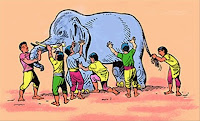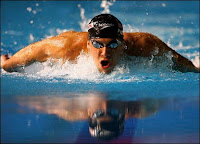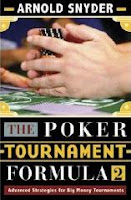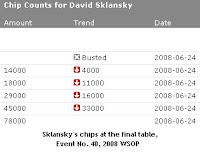Shake Some Action
 “Shake some action’s what I need to let me bust out at full speed...”
“Shake some action’s what I need to let me bust out at full speed...”Pulling a Lee Jones today by starting out with a song lyric. Been listening to the Flamin’ Groovies this week. One of the greats, though probably a good number of rock/pop fans don’t even know about ’em. Critics often compared ’em to the Rolling Stones, which I guess is somewhat apt when we’re talking about their earlier discs like Flamingo (1970) and Teenage Head (1971). I’d more quickly suggest Big Star or the Kinks for comparative purposes, though really the Groovies were one of a kind
Shake Some Action comes a bit later -- 1976 -- although it hardly sounds like the mid-seventies. That pulsing, infectious title track sounds like an 80s college hit. Other tracks on the record evoke early 60s Brit pop, though usually even those are tinged with some sort of twist or weird forward-looking element. Probably explains why the Flamin’ Groovies never really rose above cult status. Their timing was way out of kilter with the rest of the world.
I mentioned earlier in the week how I’d only had a limited amount of time here lately to play. Usually short sessions are much better for me, but they also make it difficult to get familiar with others’ styles and/or successfully establish an image of my own to try to exploit.
Have found myself several times this month feeling out of sorts while playing. For a variety of reasons I’ve been becoming too passive and essentially depending on getting good cards and hitting flops to come away even or ahead. Was starting to talk about this feeling some a couple of weeks ago in that post titled “Sometimes the Cards Play Us.”
Have slipped into that funk often enough to recognize some of its characteristics -- a good thing, since that then becomes a first step out of it. I’ll call it “Can’t Win Poker,” a style which essentially prevents you from doing well in a session unless the deck hits you in a particularly gracious and accommodating way (and the other players cooperate, too).
“Can’t Win Poker” manifests itself differently, sometimes depending on the game, though I suspect the primary characteristics of the style are similar no matter if it we’re talking pot-limit Omaha (my game), no-limit hold’em, limit hold’em, or the other games.
For me, in PLO, I start to realize I’m playing “Can’t Win Poker” when the frequency of my preflop raising slows down and perhaps even stops altogether. Then I start finding it hard to bet at pots where I have less than the nuts. Next thing I know, I am getting A-A-x-x in middle position and realize I can’t really raise that, either, as I’ve been playing in a way that essentially signals to all what my holding would be in that spot. I’m also limping in with too many “what-am-I-hoping-for?” hands. You know, those uncoordinated hands where the only way to connect with a flop would be to make a miraculous boat right away, and the likelihood of getting paid for that is minimal.
I think sometimes you can still do okay playing “Can’t Win Poker” if you have enough opponents at the table who are also playing “Can’t Win Poker.” In fact, when I’m running good-slash-playing well, I usually can identify pretty quickly a couple or more such folks and eventually find a spot to move some of their chips over to my stack.
Like I say, I suppose this self-defeating style manifests itself in different ways, say, in other games like NLHE, but probably there also tends to involve an overly passive, card-dependent, transparent approach that necessarily works against one’s goals.
What I’ve started to do when I notice this happening in my PLO games is simply to wait until I’m back in late position, then put in a raise preflop no matter what cards I am holding. Usually the raise gets some to fold, as I’ve been so darn passive. Then I’ll try to play smart postflop, pursuing a hand if it makes sense to do so, but letting it go, too, if need be. In any event, just the act of putting in that raise -- to “shake some action” -- kind of wakes me up and gets me back in the game. Also helps me work on my image, too, as well as perhaps clue me in to how others are playing.
And then, perhaps, I don’t feel so out of kilter -- like the Flamin’ Groovies always were. Check out the clip below. It is from much later (1986), but still a killer version of the tune.
Lee Jones would go back to the song at the end, so I guess I will, too...
“...and I’m sure that’s all you need to make it all right.”
Labels: *shots in the dark, Lee Jones, pot-limit Omaha, The Flamin' Groovies







 in the big blind. I checked, and the flop came
in the big blind. I checked, and the flop came 

 . The small blind checked, and I went ahead and bet the pot (a measly forty cents). Now what I’m expecting here is for the player with the set -- or in some cases, two pair -- to call (or, maybe, raise), and the guy who also has Broadway to raise it up. Or, perhaps, everyone to fold -- which would not be bad at all. As nice a flop as that is, it is not the most comfortable spot to be in when acting from early position.
. The small blind checked, and I went ahead and bet the pot (a measly forty cents). Now what I’m expecting here is for the player with the set -- or in some cases, two pair -- to call (or, maybe, raise), and the guy who also has Broadway to raise it up. Or, perhaps, everyone to fold -- which would not be bad at all. As nice a flop as that is, it is not the most comfortable spot to be in when acting from early position. . I was still good, but now there’s the spade flush to worry about as well. I went ahead and pumped $1.60 (a pot-sized bet) in the middle. I’ll admit I’m influenced here by the relatively small stacks. I only had $12.45 when the hand began, so there was not much reason to be cute. Again, both of my opponents just called. One could also have Broadway here, but I’d have expected a raise if so. Pot up to $6.40.
. I was still good, but now there’s the spade flush to worry about as well. I went ahead and pumped $1.60 (a pot-sized bet) in the middle. I’ll admit I’m influenced here by the relatively small stacks. I only had $12.45 when the hand began, so there was not much reason to be cute. Again, both of my opponents just called. One could also have Broadway here, but I’d have expected a raise if so. Pot up to $6.40. . Worst I can do is chop. In these Bodog hand histories, there’s a timestamp for every single action, so I can tell you with confidence that I waited exactly ten seconds before acting on that river card. That was deliberate. I then bet one dollar.
. Worst I can do is chop. In these Bodog hand histories, there’s a timestamp for every single action, so I can tell you with confidence that I waited exactly ten seconds before acting on that river card. That was deliberate. I then bet one dollar.


 . Wha? He’d flopped a pair of aces (and a pretty hopeless straight draw), turned a flush draw, then rivered a jack-high straight. I won the $28.05 pot -- a nice one by my standards, never mind the stakes.
. Wha? He’d flopped a pair of aces (and a pretty hopeless straight draw), turned a flush draw, then rivered a jack-high straight. I won the $28.05 pot -- a nice one by my standards, never mind the stakes.

 . Three limped, I completed, and the big blind checked. The flop came
. Three limped, I completed, and the big blind checked. The flop came 
 . I wasn’t too interested in this one, but when ShowMeMoe bet a quarter into the fifty-cent pot and no one else came along, I decided to take one off. The turn brought the
. I wasn’t too interested in this one, but when ShowMeMoe bet a quarter into the fifty-cent pot and no one else came along, I decided to take one off. The turn brought the  . How do you do? Broadway. Nice to meet you again.
. How do you do? Broadway. Nice to meet you again. and again I had the good fortune of ending the hand with the nuts. I took four seconds to bet the pot, and ShowMeMoe took half that long to call me. His hand?
and again I had the good fortune of ending the hand with the nuts. I took four seconds to bet the pot, and ShowMeMoe took half that long to call me. His hand? 

 . Top two and another busted flush. $8.95 to Shamus.
. Top two and another busted flush. $8.95 to Shamus.








 . The player under the gun raised pot to $0.85, and it folded to me. I called, the button folded, and both blinds called as well. Pot $3.25 (after rake). The flop came
. The player under the gun raised pot to $0.85, and it folded to me. I called, the button folded, and both blinds called as well. Pot $3.25 (after rake). The flop came  . Both blinds checked, and the preflop raiser without hesitation raised pot.
. Both blinds checked, and the preflop raiser without hesitation raised pot.  . My opponent
. My opponent 

















